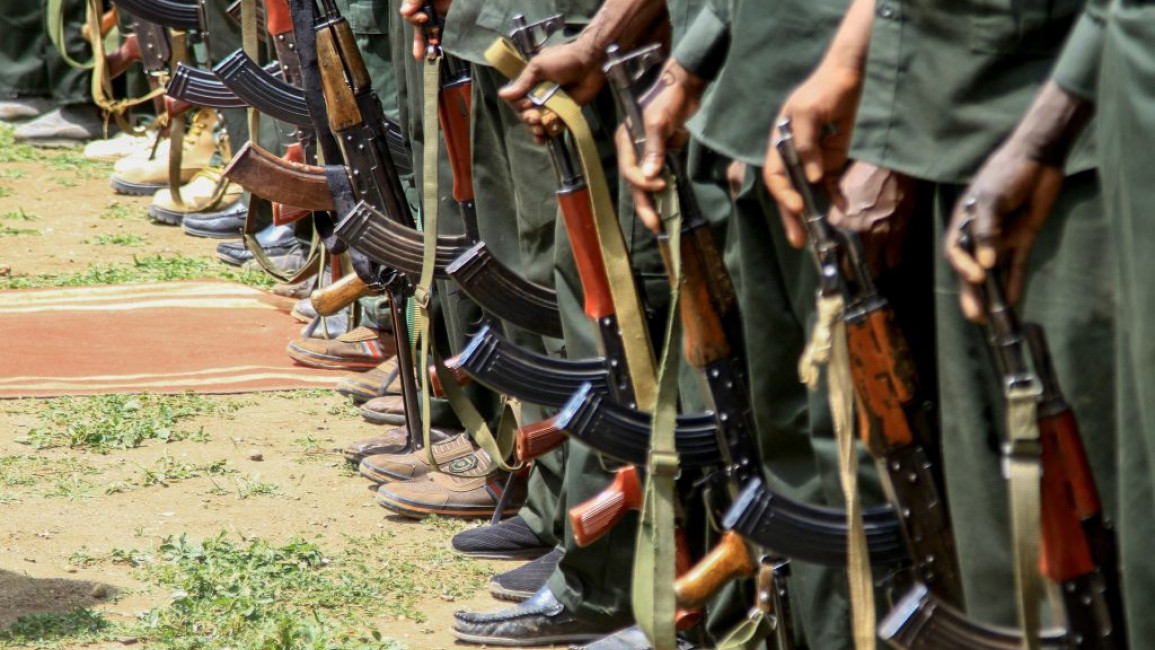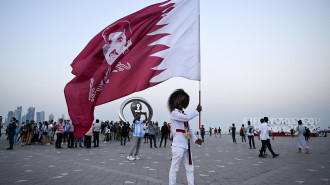
In the shadows of Sudan's war, illegal detention sites surge

In the wake of Sudan’s descent into war between the army and the Rapid Support Forces (RSF) in April, its capital Khartoum, now turned into one of the main frontlines, has witnessed a rapid spread of illegal detention centres run by both warring parties, where a wide range of human rights violations are being committed in the dark.
In just five months of conflict, at least 52 such new detention sites have been established in Khartoum state alone, according to a recent report by the pro-democracy Emergency Lawyers based on more than 60 testimonies, including dozens of former detainees.
Of all these facilities, 44 are controlled by the RSF and the remaining eight by the army.
The report stresses that the widespread proliferation of illegal detention sites in the gloom of Khartoum builds on a long legacy of state repression that has gone systematically unsanctioned in the country for decades.
"In just five months of conflict, at least 52 such new detention sites have been established in Khartoum state alone"
But the lawyers warn that the outbreak of war paved the way for the situation to deteriorate to unprecedentedly “catastrophic” levels.
Khartoum’s new detention centres are divided into two main groups. The temporary ones, which are smaller and located in residential or civilian buildings such as schools and police stations, are places where detainees are often first brought in and interrogated.
From there, they are usually transferred to large, permanent centres away from residential areas and located in places such as military quarters. Hundreds may be illegally detained there at any one time, according to the report. Mohamed Salah of the Emergency Lawyers told The New Arab that in total there may be as many as 5,000 detainees in these centres.
Conditions in all illegal detention facilities, regardless of which of the warring sides run them, are described as appalling. Common to all are the cruel treatment of civilians and military prisons alike and the widespread use of torture, including electrocutions, hanging by the legs, starvation, and forced labour such as digging graves for the dead.
The Emergency Lawyers also documented sexual assaults against both women and men. One of the collected testimonies said that RSF members forced him to undress and threatened to rape him during interrogation. Another reported that in the RSF detention centre where he was held, a woman and her daughter were assaulted more than once.
Salah told TNA that there are also numerous children in the same detention facilities, most of them over the age of 12, as well as “a large number of children fighting with the forces of either side after being recruited as child soldiers”.
The situation of detainees in illegal detention sites is seriously compounded by the lack of medical services and their poor hygienic conditions, including a lack of ventilation and limited clean water and toilets. The report stresses that this is one of the main reasons for the death of inmates, especially those severely tortured or suffering from a chronic illness.
Overcrowding in some of these facilities also makes it easier for viral diseases to spread. In the case of the basement of the Open University of Sudan, which is used by the RSF as a detention site, the report estimated that the number of detainees could exceed 700.
|
|
Arbitrary detentions
Gillian Kitley, director of the UN’s Office of the High Commissioner for Human Rights in Sudan, said the army primarily uses military sites and prisons, premises of the Military Intelligence and the General Intelligence Service, and police stations as detention centres.
“Legally, the joint security forces should not be holding people in any of these locations, except in police stations, where civilians arrested should be held in pre-trial detention, pending judicial review of the charges against them,” Kitley told TNA.
She added: “As for the RSF, the information we have gathered indicates that they have been detaining civilians arbitrarily in their military sites and security premises they have taken over in the course of fighting. But they have also extensively used civilian buildings that they have taken over and converted into detention centres”.
Salah explained that each side justifies their own arrests on different grounds. “The RSF arrests based on the belief that they are members of the Military Intelligence, or on ethnic grounds, such as arresting Nuba people. They also do it on a political basis based on the belief that they belong to the National Congress Party or that they are Islamists,” he said.
“The SAF arrests on ethnic grounds, such as arresting members of the Rizeigat, Baggara and other Arab tribes [from] Darfur. They also arrest activists and members of [the pro-democracy] emergency rooms as groups that oppose the Islamists,” Salah noted.
Kitley said they have also recorded arrests of doctors accused of providing medical care to one of the warring parties, and the detention of at least 19 human rights defenders and members of the resistance committees by the army based on their opposition to the war. She added that they are also aware of the arrest in Greater Khartoum of 16 volunteers of emergency rooms, which are civilian groups providing humanitarian aid and assistance.
"The widespread proliferation of illegal detention sites in the gloom of Khartoum builds on a long legacy of state repression that has gone systematically unsanctioned in the country for decades"
Two years ago, Human Rights Watch issued a report alleging that the RSF, despite having no legal authority, had detained dozens of civilians in Khartoum in 2021, during the first year of the fragile democratic transition following the overthrow of former dictator Omar Al Bashir.
HRW noted that detainees were held incommunicado or missing for between a week and a month and that in some cases they were physically ill-treated.
Sudanese security forces also illegally detained hundreds of protesters in the months that followed the contested military coup of October 2021 that put an end to the democratic transition, according to a separate HRW report. It documented ill-treatment in detention, including stripping children naked and threats of sexual assault against women.
|
|
Mohamed Osman, a researcher in HRW monitoring Sudan, said that at the time the RSF’s arrests were clearly illegal under international human rights law as there was no conflict.
Now that Sudan is suffering an armed conflict, he noted, the situation is different because international humanitarian law does not prevent armed groups from detaining civilians. Yet Osman stressed that this applies as long as they receive humane treatment.
“The detention under human rights law has certain standards and guarantees. [And] all agree on the importance of prohibiting any kind of violations such as torture, ill-treatment, sexual violence, forced labour, [or] extrajudicial killings,” Osman told TNA.
“So, even if under international humanitarian law it’s not prevented to detain civilians, there are a lot of issues that you, as a security force or armed group, have to embrace,” he added. “The key issue is: if you are detaining civilians, how much you are respecting their dignity and well-being and the international law while doing so.”
Kitley noted that “what is [also] illegal is there has been no judicial process in the case of any of these civilians arrested in the Khartoum area”.
“The arrests are arbitrary; they are all held in incommunicado detention, none of their rights are respected in relation to due process, contact with their families and lawyers, the family having the right information about their location, and the reasons of their arrest,” she added.
The Emergency Lawyers call on both the army and the RSF to release all detainees held without legal justification, to disclose a list of detainees and those forcibly disappeared, and to allow them to communicate with their families. They also demand that independent monitors be allowed access to detention sites and that they facilitate an investigation.
The pro-democracy group also calls on the international community to redouble its pressure on the warring sides to stop the human rights violations in these centres and to accede to the above demands. They urge them to join in efforts to document abuses and to form an international committee to monitor the human rights situation in Sudan.
Marc Español is a Catalan journalist based in Cairo.
Follow him on Twitter: @mespanolescofet




